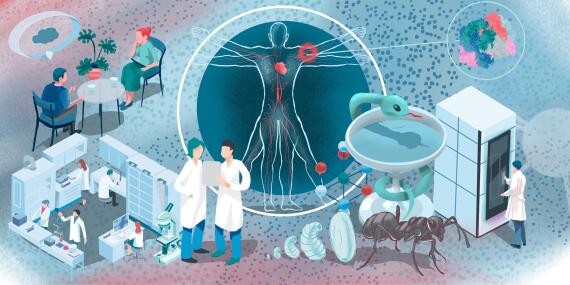Impact areas
“Impact areas” refers to areas in which researchers at the University of Münster jointly collaborate on developing groundbreaking solutions to the complex challenges facing society today. In cooperation with partner universities, non-university institutions, industry, businesses, schools, governmental agencies and non-profit organisations, they strive to initiate and implement science-based, sustainable transformation. The University of Münster has established four “impact areas” which bundle the disciplinary strengths and resources required to advance socially impactful, interfaculty and interdisciplinary cutting-edge research.




